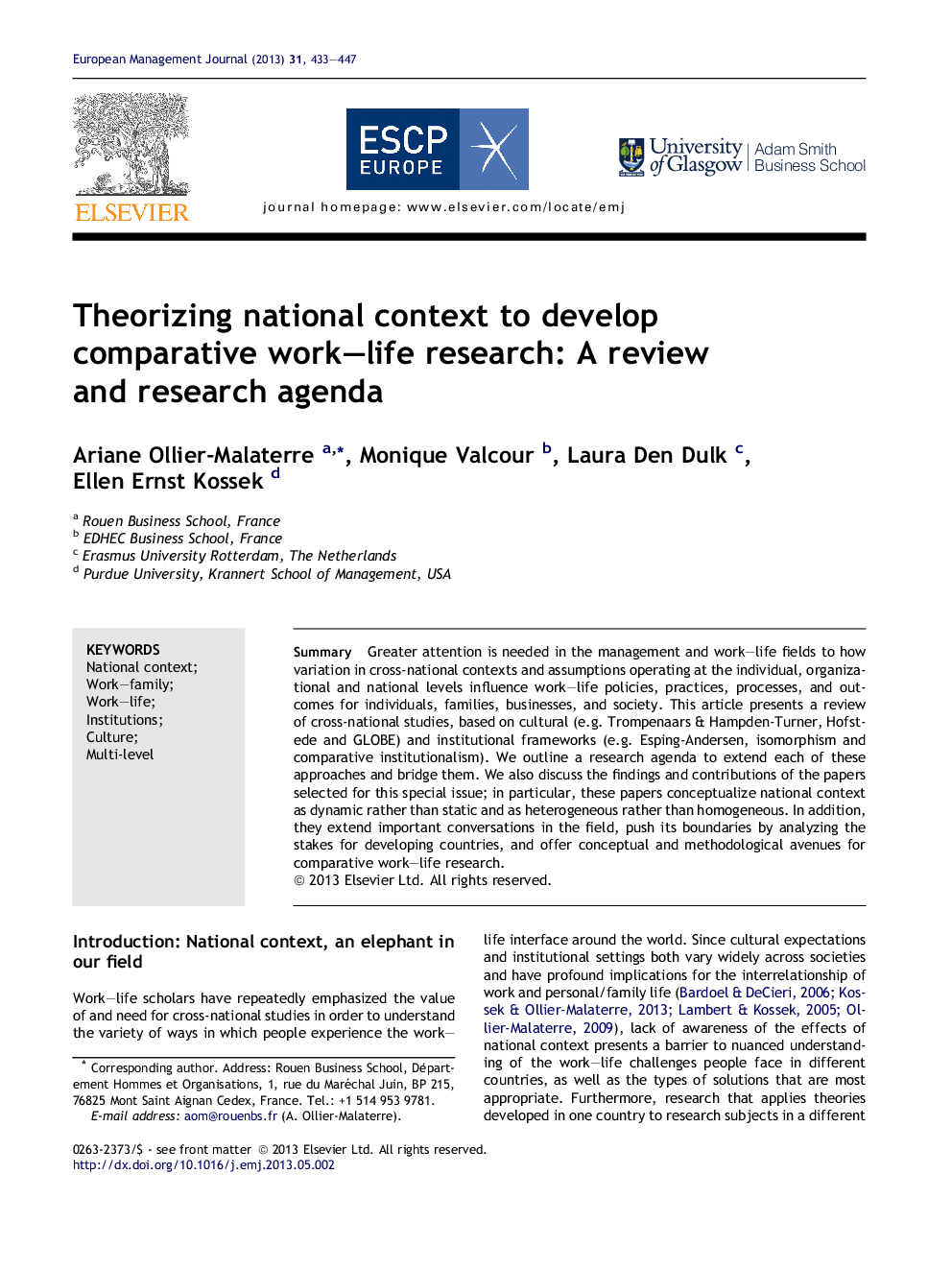| Article ID | Journal | Published Year | Pages | File Type |
|---|---|---|---|---|
| 1014814 | European Management Journal | 2013 | 15 Pages |
•We explain why it is important to capture and theorize national context in work–life research.•We review cross-national studies based on cultural and institutional frameworks.•We provide a research agenda for comparative work–life research.•We introduce the six papers selected for this special issue and outline their contributions.
SummaryGreater attention is needed in the management and work–life fields to how variation in cross-national contexts and assumptions operating at the individual, organizational and national levels influence work–life policies, practices, processes, and outcomes for individuals, families, businesses, and society. This article presents a review of cross-national studies, based on cultural (e.g. Trompenaars & Hampden-Turner, Hofstede and GLOBE) and institutional frameworks (e.g. Esping-Andersen, isomorphism and comparative institutionalism). We outline a research agenda to extend each of these approaches and bridge them. We also discuss the findings and contributions of the papers selected for this special issue; in particular, these papers conceptualize national context as dynamic rather than static and as heterogeneous rather than homogeneous. In addition, they extend important conversations in the field, push its boundaries by analyzing the stakes for developing countries, and offer conceptual and methodological avenues for comparative work–life research.
